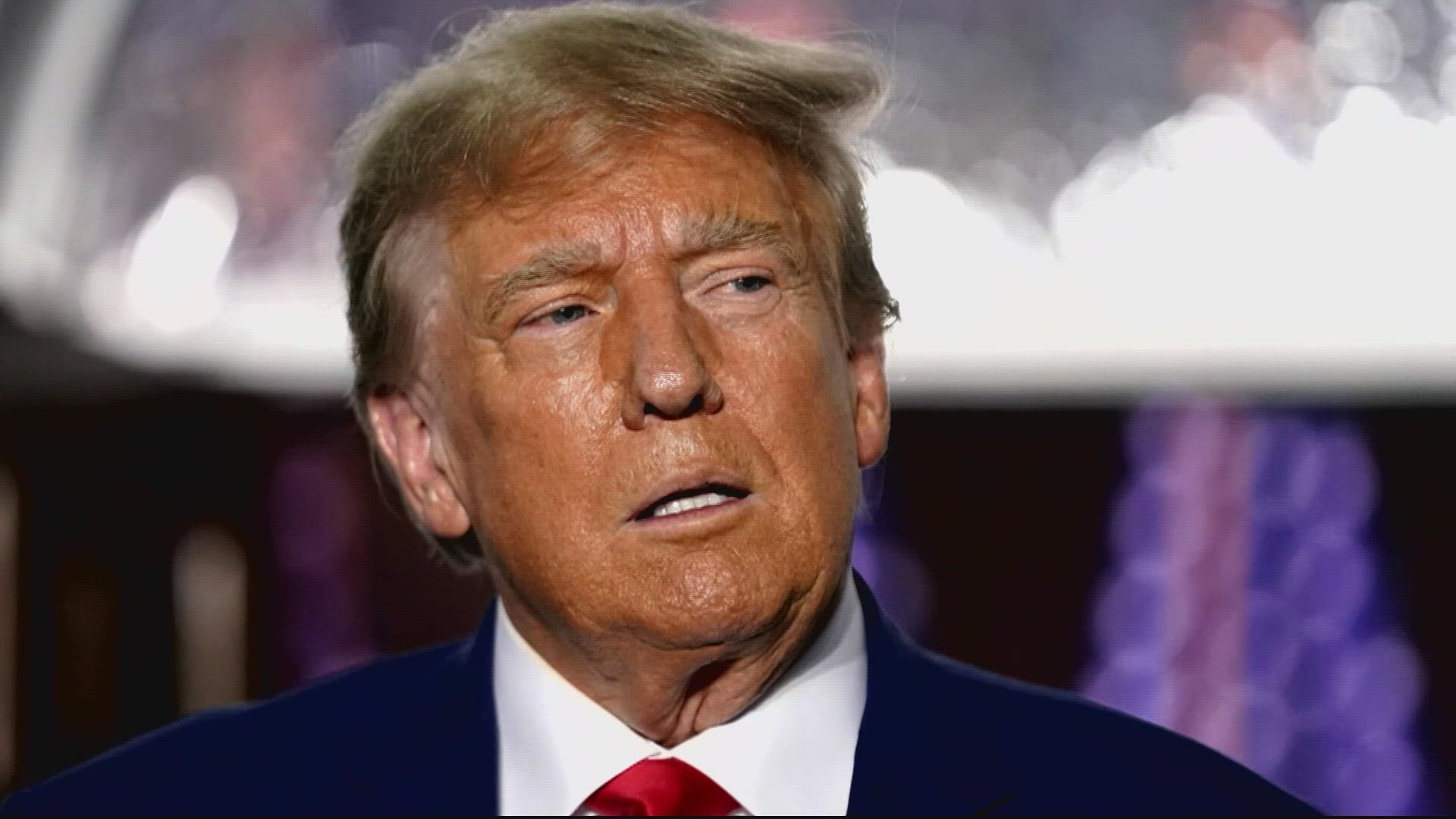WASHINGTON — The D.C. Circuit Court of Appeals upheld much of a lower judge’s gag order in Donald Trump’s election fraud case Friday – saying the former president’s history of public attacks on his perceived opponents posed a “significant and imminent threat” to the judicial process.
In October, U.S. District Judge Tanya S. Chutkan imposed a limited gag order barring Trump from public comments about witnesses, attorneys, court staff and others in connection with charges accusing him of conspiring to defraud the United States in his efforts to overturn the results of the 2020 election. At the time, Chutkan said she wouldn’t allow Trump to conduct a “pre-trial smear campaign” on prosecutors or potential witnesses.”
Trump’s attorneys appealed the gag order last month to the D.C. Circuit, arguing it amounted to a “heckler’s veto” and pushing back on any restrictions on his speech as a candidate for the Republican nomination for president. On Friday, a three-judge panel largely rejected Trump’s arguments and upheld key provisions of the gag order sought by special counsel Jack Smith’s office.
In their opinion, Judge Patricia A. Millett, Cornelia T.L. Pillard and Bradley Garcia said Trump’s own public statements supported the restrictions Chutkan had placed on his comments about attorneys, court staff and known and “reasonably foreseeable” witnesses.
“Mr. Trump’s documented pattern of speech and its demonstrated real-time, real-world consequences pose a significant and imminent threat to the functioning of the criminal trial process in this case in two respects,” the opinion reads. The opinion was written by Millett with no dissents filed.
First, the judges said, Trump’s messages about possible witnesses pose a threat to their willingness to participate “fully and candidly” in the process. Second, they said, comments about counsel and staff working on the case could hinder the trial process by causing them to have “objectively reasonable concerns about their safety and that of their family members.” The judges noted that many people on “the receiving end of his attacks… have been subjected to a torrent of threats and intimidation” from his supporters.
“Given the record in this case, the court had a duty to act proactively to prevent the creation of an atmosphere of fear or intimidation aimed at preventing trial participants and staff from performing their functions within the trial process,” the judges wrote.
The judges noted multiple public attacks Trump has made on potential witnesses – including his former Vice President Mike Pence, former Georgia Lieutenant Gov. Jeff Duncan and former White House chief of staff, Mark Meadows –- as well as his attacks on the New York judge and law clerk in his ongoing $250 million civil fraud trial. They also noted that a day after Trump threatened on social media that he was “COMING AFTER” people who went after him, a Texas woman left a voicemail on Chutkan’s phone containing racial epithets and threats to kill anyone who went after Trump. That woman, Abigail Jo Shry, is now facing federal charges.
“The record shows that Mr. Trump has repeatedly attacking those involved in this case through threatening public statements, as well as messaging daggered at likely witnesses and their testimony,” the judges wrote. “For example, the day after his initial appearance in court, Mr. Trump issued a warning: ‘IF YOU GO AFTER ME, I’M COMING AFTER YOU!’”
Despite their repeated warnings about the possible effects of Trump’s speech, the judges also said Chutkan’s order would need to be narrowed when it came to limits on his speech about potential witnesses – particularly those who are already public figures. The opinion called on Chutkan to craft narrower limitations on speech that had a “nexus” to the witnesses’ participation in the case.
“That allows the former President to continue to speak out about those same persons’ books, articles, editorials, interviews or political campaigns as long as he does so in a manner that does not concern their roles as witnesses or the content of any expected testimony,” the opinion reads.
The judges gave two examples to illustrate their thinking. They said Trump’s comments calling his former attorney general, Bill Barr, “lethargic and slow-thinking” and criticizing his actions in the wake of the 2020 election didn’t concern his potential participation in his trial. But, they said, Trump should be barred from further comments like the ones he made about Meadows after it was reported that his former chief of staff was cooperating with prosecutors.
“Hours after news broke asserting that former Chief of Staff Mark Meadows was cooperating with the Special Counsel, Mr. Trump asked on social media whether Meadows was the type of “weakling[] and coward[]” who would ‘make up some really horrible ‘STUFF’’ about Mr. Trump in exchange for ‘IMMUNITY against Prosecution (PERSECUTION!) by Deranged Prosecutor, Jack Smith,’” the judges wrote. “That statement, considering both its timing and its content, concerns Meadows’ potential cooperation with the prosecution and his potential testimony against Mr. Trump and so is properly proscribed.”
Trump’s attorneys have mounted an aggressive defense against any limitations on his speech as he continues to run for the Republican nomination for president and have signaled they would seek a swift appeal of an adverse ruling by the Circuit. Their first move could be to seek an en banc hearing by the entire appellate court. Ultimately, Trump’s attorneys were likely to seek relief from the U.S. Supreme Court on this and other pending appeals as they seek to delay Trump’s criminal trials until after the 2024 election.

